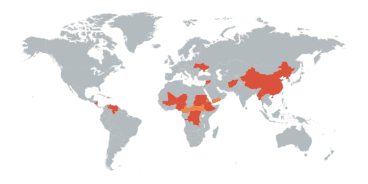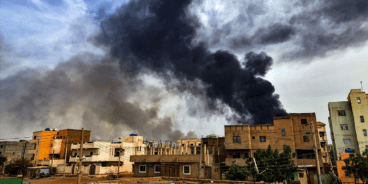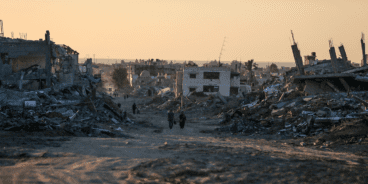
Statement on the Crisis in South Sudan, December 2013
Civilians in South Sudan face an imminent risk of mass atrocity crimes as a result of widespread violence that started on 15 December. At least 500 people have already been killed in fighting between sections of the Sudan People’s Liberation Army (SPLA) aligned with President Salva Kiir and those accused of supporting an alleged coup attempt by the former Vice-President, Riek Machar. The SPLA appears to be splitting along ethnic lines, with Dinka and Nuer elements battling one another.
The ethnic dimension of the fighting increases the likelihood of widespread inter-communal violence and the country appears on the brink of civil war. There have already been reports of Dinka SPLA soldiers going house-to-house in Juba killing civilians on the basis of their Nuer ethnicity. While the government controls Juba, several regional towns have fallen to anti-government forces. In Bor there have been reports of targeted attacks on ethnic Dinka.
The threat to civilians should not be understated. Over 30,000 people have already sought refuge at United Nations Mission in South Sudan (UNMISS) bases. UNMISS’ original mandate authorized the mission to advise and assist the government of South Sudan “in fulfilling its responsibility to protect civilians.” It is struggling to uphold this responsibility. On 19 December an UNMISS base in Akobo, Jonglei state that was sheltering Dinka civilians was over-run by Nuer youth. Tragically, two UN peacekeepers were killed along with at least eleven civilians.
Prior to the recent fighting, South Sudan was already facing a deep and multifaceted crisis. During July President Kiir fired his government, including Machar. Ongoing border disputes between Sudan and South Sudan mean that a resumption of armed hostilities remains possible. An armed insurgency and cycles of inter-communal violence in Jonglei state pose a grave threat to security and stability. The current fighting increases the likelihood that any or all of these crises could result in further mass atrocities.
It is imperative that the African Union and UN, along with allies and supporters of South Sudan, act swiftly to ensure that the government protects vulnerable populations, regardless of their ethnicity or allegiance, and brings an end to the fighting. The international community should facilitate mediation efforts aimed at resolving the crisis. President Kiir and Riek Machar should engage in peace negotiations and publicly urge reconciliation between Nuer and Dinka communities.
UNMISS must be given emergency support and the necessary resources to enable it to fulfill its protective mandate. The UN must also conduct an investigation into human rights abuses perpetrated since 15 December.
The independence of South Sudan represents one of the UN’s proudest moments so far this century. The current fighting and failure to adequately protect civilians from the threat of mass atrocities would leave an indelible stain upon this achievement.
Related Content


